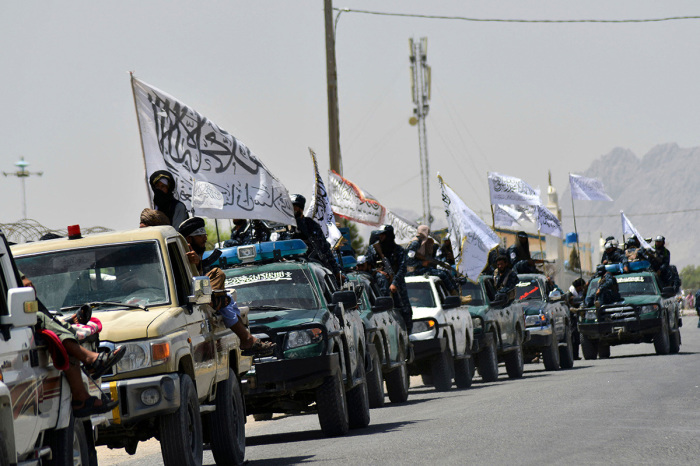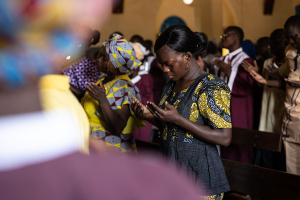'Beaten and humiliated': Students detail horrors of Taliban's education system

The education policies of the Taliban government in Afghanistan are not only harmful to girls but also boys in the Muslim-majority nation as students are reporting a rise in abuse and more focus on Islamic religious education, according to a new report.
Human Rights Watch released a 19-page report on Tuesday titled "'Schools are Failing Boys Too': The Taliban's Impact on Boys' Education in Afghanistan," which analyzed the impact of Taliban's policies and practices since the extremist organization regained control of Afghanistan in August 2021 after the United States' military withdrawal.
Researchers interviewed boys and their parents in eight of the nation's 34 provinces. They found "an alarming deterioration in boys' access to education and the quality of their education," driven in part by the Taliban removing female teachers from their jobs and a rise in corporal punishment.
"The curriculum in many schools appears to be under revision to remove important school subjects and promote discrimination," the report reads. "The … humanitarian crises in the country has also placed greater demands on school boys."
"These circumstances have led many boys to leave school altogether; those who remain attend classes with few students and sometimes no teachers."
Subjects reportedly eliminated in Afghan schools include the arts, sports, English language classes and civics education, coinciding with additional hours "dedicated to Quran and Islamic studies." HRW stresses that the changes have contributed to "a decline in educational quality, increased anxiety about attending school, and a loss of hope for the future."
While the Taliban prohibits secondary education and higher education for girls and women, HRW reports that "rights violations extend beyond the severe restrictions imposed on girls' and women's education."
"The Taliban's prohibition of girls from attending secondary school and higher education along with the infliction of serious harms to the system to educate boys is deeply incompatible with international human rights standards and best practices.," the report states.
Students and family members told HRW that the Taliban takeover has also led to an increase in school officials beating, slapping, humiliating and foot-whipping students as a form of discipline.
"I have been beaten and badly humiliated during the morning assembly in front of everyone, once for having a mobile phone with me and the second time for my hairstyle," a student said in an interview with HRW. "They cut my hair in front of everyone during the morning assembly, saying it resembled 'Western style,' and after that, I was punished with foot whipping."
Witnesses say officials from the Ministry of Propagation of Virtue and the Prevention of Vice often visit schools and enforce "draconian rules and interfering with the role of the proper school authorities."
"I don't understand the difference between my school and our local mosque anymore," one student told HRW. "We are lacking professional teachers who taught us important subjects such as physics, computer science and chemistry."
Students interviewed say the Taliban required students to wear traditional Afghan attire.
"In the beginning, when the government changed, some of my classmates and I had a hard time quickly changing from the pants-and-shirt uniform to perahan tunban, and because of that, we each got two slaps and were kept out of the classroom for the entire day," a student told investigators.
Another student said there is more focus on learning the Pashto language at his school.
"One new teacher asked my classmate to write a poem In Pashto, but my classmate was unable to do it," the student said. "The teacher made him stand on one foot in front of the classroom, slapped him in face several times, and pulled his ears. My classmate felt humiliated."
Sahar Fetrat, an assistant women's rights researcher who authored the report, said in a statement that the Taliban government is "causing irreversible damage" to the education system.
"By harming the whole school system in the country, they risk creating a lost generation deprived of a quality education," said Fetrat. "An immediate and effective international response is desperately needed to address Afghanistan's education crisis."
After the Taliban's return to power, HRW states that it engineered a "swift reversal" of the progress made in the Afghanistan education system following the U.S.-led invasion of Afghanistan in 2001 and the creation of the Afghanistan government in 2004.
Although President Joe Biden vowed to use "economic tools" to help protect rights in Afghanistan, the Taliban government has extensively cracked down on civil liberties.
This has included banning girls from secondary education, forcing several news media outlets to shut down and barring public demonstrations critical of the government.
Adela Raz, Afghanistan's former ambassador to the U.S., told Axios on HBO in October 2021 that she didn't believe Biden was concerned about the plight of women in the Taliban-controlled nation when he pulled the troops out of the country.
"I don't think so. He said, 'U.S. cannot be the police of the world, to protect women in any other country,'" said Raz. "What type of tools are left right now to pressure Taliban that they respect the human rights?"





























